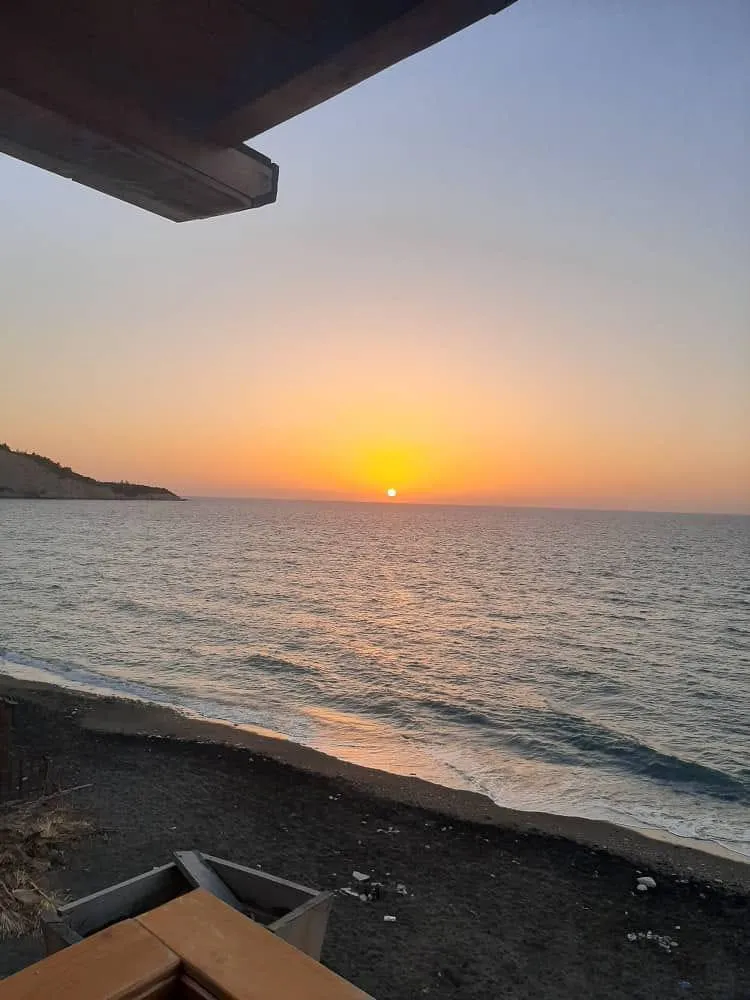 Image: A picture taken by Dr Abdulla's wife of Wadi Kandeel beach in Latakia, Syria.
Image: A picture taken by Dr Abdulla's wife of Wadi Kandeel beach in Latakia, Syria.
Where did you live in Syria? What was home like?
I come from a Syrian city called Latakia, which is a typical Mediterranean city with its beautiful expansive beaches, hot and humid weather during spring, summer and early autumn, densely populated, surrounded by beautiful green countryside, mostly planted with olive and orange trees, vines, and cacti.
One of the most beautiful aspects of Latakia, apart from the sea, is that you can go from the beach to a high mountain top (over 1000 meters high) in less than an hour by car. Socially speaking, just like most other Mediterranean cities, the real entertainment is on the streets and on the balconies. Latakians are such sociable people who are eager to have fun and enjoy good times with neighbours and friends. Before the war the population of the city was 400,000 people and that quadrupled to 1.6 million at the height of the war in 2015.
What is worth mentioning is that the city of Latakia had received as many refugees as the entire continent of Europe by 2015 - 1.2 million - which puts things in perspective when we think about the real impact of war on populations, on top of death and destruction. Luckily, some who escaped into Latakia have now managed to return, especially since the fighting stopped in Aleppo - Syria's biggest city.